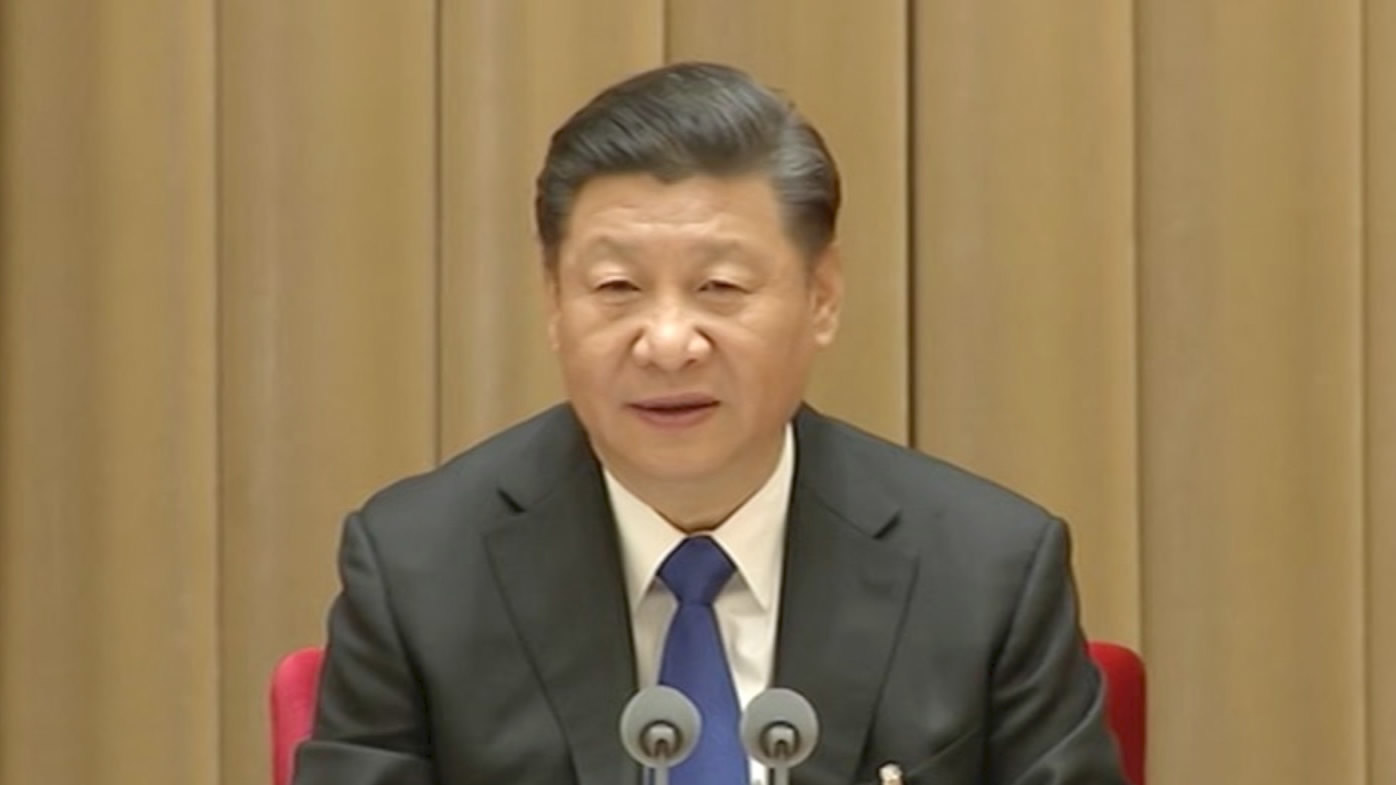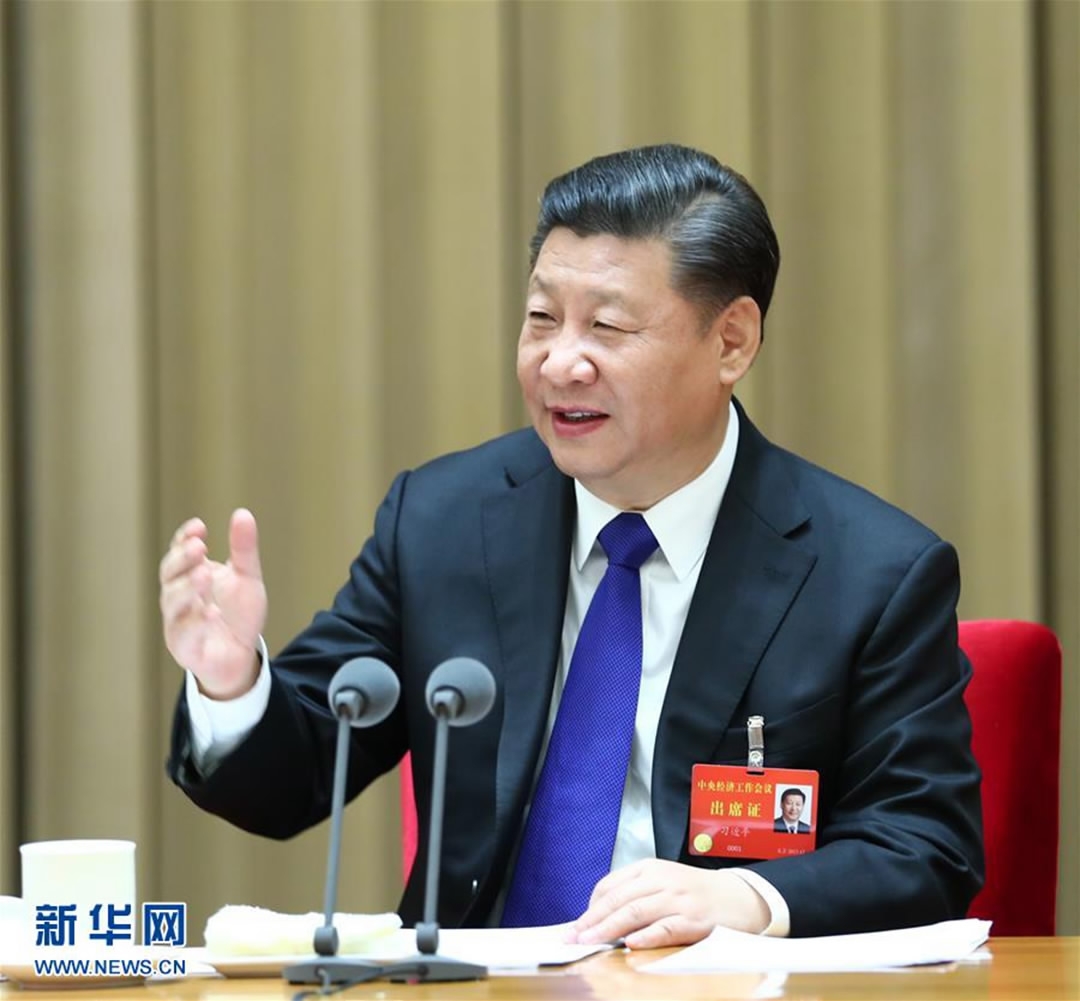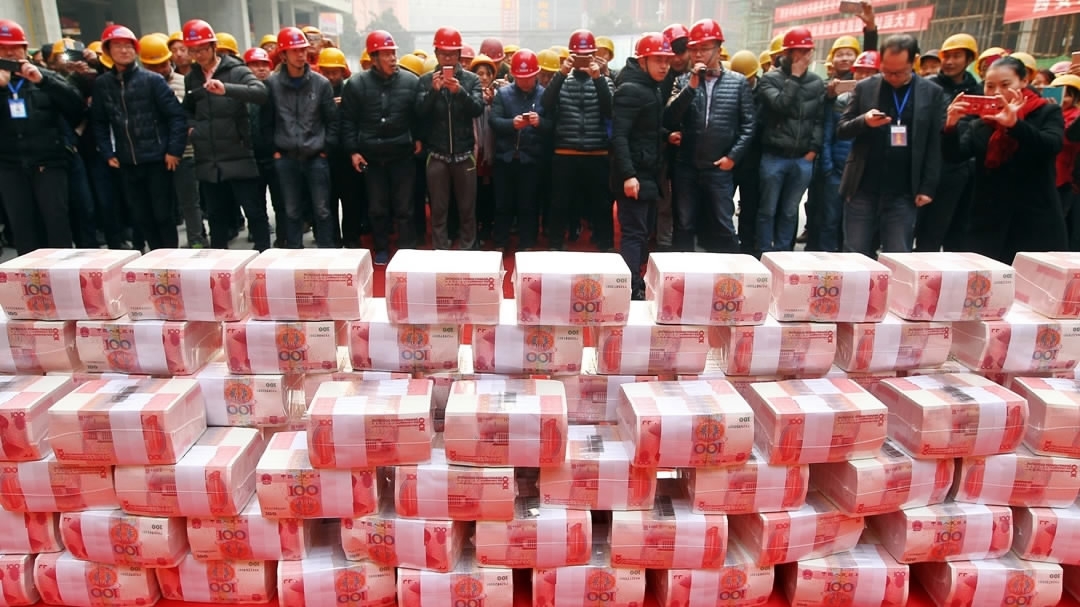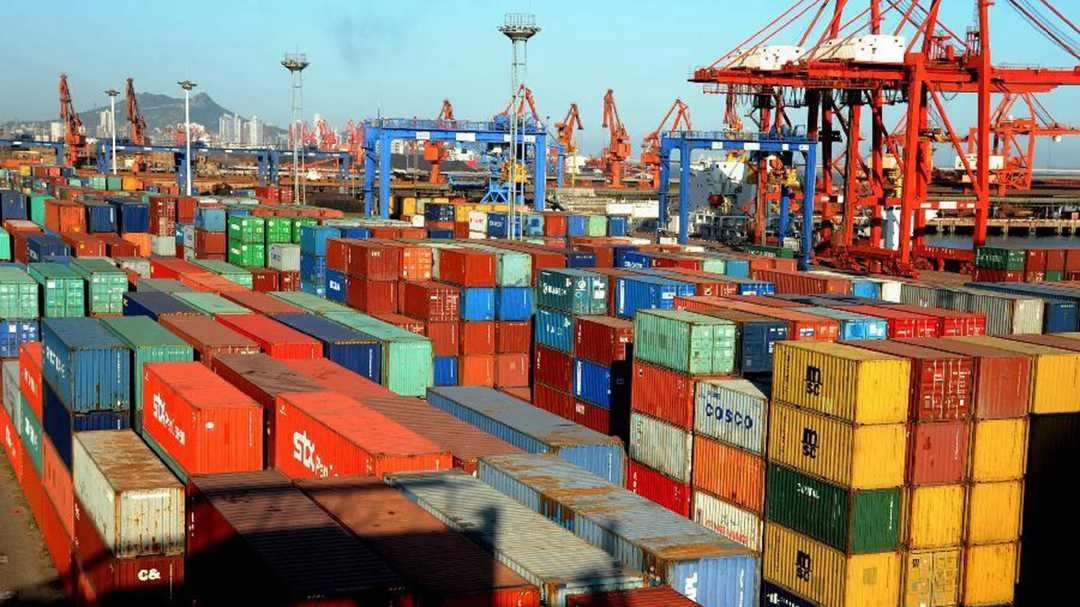
Business
18:16, 20-Dec-2017
China’s Central Economic Work conference concludes with plans for 2018
CGTN

China reviewed its economic work in 2017 and mapped out its economic and reform plans for 2018 during the three-day Central Economic Work Conference that concluded on Wednesday in Beijing.
The country will press ahead with high-quality development and carry out targeted measures to improve people’s livelihood in the coming year, with focus on targeted poverty alleviation, environmental protection, deleveraging, housing system, and balanced trade among others.
The annual conference, held for the first time since the 19th National Congress of the Communist Party of China (CPC), was attended by President Xi Jinping, who is also general secretary of the CPC Central Committee and chairman of the Central Military Commission.
Xi summed up the economic development process of China since the 18th National Congress of the CPC, analyzed current economic situation and arranged economic work in 2018.
Chinese Premier Li Keqiang also made specific arrangements to next year's economic work during his speech at the conference and delivered the concluding remarks.
Xi’s Thought takes shape

Chinese President Xi Jinping addresses the Central Economic Work Conference held in Beijing from December 18 to 20, 2017. /Xinhua Photo
Chinese President Xi Jinping addresses the Central Economic Work Conference held in Beijing from December 18 to 20, 2017. /Xinhua Photo
Xi's Thought on Socialist Economy with Chinese Characteristics for a New Era has taken shape. It is mainly based on the new development philosophy put forward by Xi in 2015 and features innovation, coordination, green development, openness and sharing, according to the statement.
The thought is the "theoretical crystallization" of the past five years of practice in pushing forward China's economic development, and the "latest fruit" of socialist political economy with Chinese characteristics.
Pushing ahead high-quality development
"As socialism with Chinese characteristics has entered a new era, China's economic development has also entered a new era. The basic feature is that China's economy has transitioned from a phase of rapid growth to a stage of high-quality development," the statement said.
"High-quality development is the fundamental requirement for determining the development path, making economic policies, and conducting macroeconomic regulation at present and in the period to come," it said.
China must build and improve the mechanisms for pushing forward high-quality development, and create the indicators, policies, standards, statistical and performance assessment systems.
The statement listed eight major tasks centering on pursuing high-quality development, including deepening supply-side structural reform, stimulating the vitality of market entities and seeking wider opening up.
Furthering supply-side structural reform
According to the statement, the country will further its supply-side structural reform in 2018, with more efforts to improve economic quality, promote innovation, cut overcapacity and foster new growth drivers.
There will be a shift from "Made in China" to "Created in China". China will put emphasis on quality rather than speed, with a goal of developing from a manufacturer of quantity to one of quality.
Reforms on resource allocation will be pushed forward, with measures to eliminate ineffective supply, support innovative businesses and reduce costs in sectors of the real economy, such as the power, oil and natural gas, and railway sectors.
Prudent monetary and fiscal policies
China will continue to adopt a prudent and neutral monetary policy and a proactive fiscal policy in the next year, said the statement.
"Prudent monetary policy should be kept neutral, the floodgates of monetary supply should be controlled, and credit and social financing should see reasonable growth," the statement said.
"Meanwhile, the proactive orientation of fiscal policy will be maintained, while the structure of fiscal spending should be optimized," it said.
The yuan exchange rate will be kept basically stable at a reasonable and balanced level.
Concrete measures will be taken to strengthen the regulation of local government debt.
Focus on targeted poverty reduction

VCG Photo
VCG Photo
The country will also prioritize measures for targeted poverty reduction during the next three years, as it tries to secure a decisive victory in becoming a moderately prosperous society in all respects, the statement noted.
At of the end of 2016, there were 43.35 million Chinese living below the national poverty line. The country has pledged to eliminate poverty by 2020.
Crackdown on financial irregularities
In the coming three years, China will continue to crack down on irregular and illegal activities in the financial industry to forestall risks. It will seek to foster a "virtuous circle" between finance and real economy, between the finance and property sectors, as well as within the financial system, to serve the country’s supply-side structural reform, according to the statement.
In 2017, regulators introduced broad efforts to clean up the banking, insurance and securities markets. Regulations on irregular financing activities in the property sector were also strengthened.
In the first 10 months of this year, China's banking regulatory authorities imposed administrative penalties in 2,617 cases of irregularities in the industry, covering state-owned banks, joint-equity banks and city commercial banks.
Due to the strengthening regulations and China's steady economic growth, global ratings agency Moody's this month predicted a stable outlook for Chinese financial institutions through 2018.
Fighting pollution
The country will focus on pollution prevention and control for the next three years as well, which will be one of the "three tough battles"— the other two being deleveraging and major risk control, and targeted poverty reduction, said the statement.
It is to make a substantial reduction in the total discharge of major pollutants, the overall improvement in the quality of the ecological environment, and win the battle for the blue sky.
Boosting imports for balanced trade

VCG Photo
VCG Photo
China would increase imports and cut import tariffs for some products to promote balanced trade as part of its effort to push forward a new pattern of all-round opening up, according to the statement.
The country will expand free trade zone pilot areas and guide foreign investors to operate in the country in an efficient way.
It will push for nationwide implementation of a pre-establishment national treatment system as well as a negative list.
Housing purchase and renting
The statement highlighted the importance of putting in place a housing system that ensures supply through multiple sources, provides housing support through multiple channels, and encourages both housing purchase and renting for the coming year.
The country will develop its housing rental market, especially long-term leases, protect the legal rights of concerned parties, and support the development of professional and institutional house rental enterprises.
A long-term mechanism that promotes stable and healthy development of the real estate market will be improved while maintaining consistency and stability of regulatory policies.
The statement also said powers should be divided between central and local governments, and China will apply a differentiated property policy based on local conditions.
Targeted measures to improve livelihood
The country will continue to improve people's livelihoods, implementing tailored measures to tackle issues such as structural imbalance in employment and difficulties in receiving medical treatment, the statement said.
Other problems, which people are concerned about, are related to childhood education, pension insurance and online scams, according to the statement.
Economic achievements in the past five years
China has made historic economic achievements in the past five years. As the statement pointed out, the country’s economy grew at an average speed of 7.1 percent during the period, becoming a growth engine and stabilizer for the world economy. It also houses the world's largest middle-income population.
Since the 18th National Congress of the CPC in 2012, the Chinese public has shared a growing sense of gain and happiness, and more people have equitable access to basic public services.
Decisive progress has been made in China's fight against poverty, while notable achievements have been seen in controlling air, water and soil pollution.
(With inputs from Xinhua)
More stories:
1km

SITEMAP
Copyright © 2018 CGTN. Beijing ICP prepared NO.16065310-3
Copyright © 2018 CGTN. Beijing ICP prepared NO.16065310-3